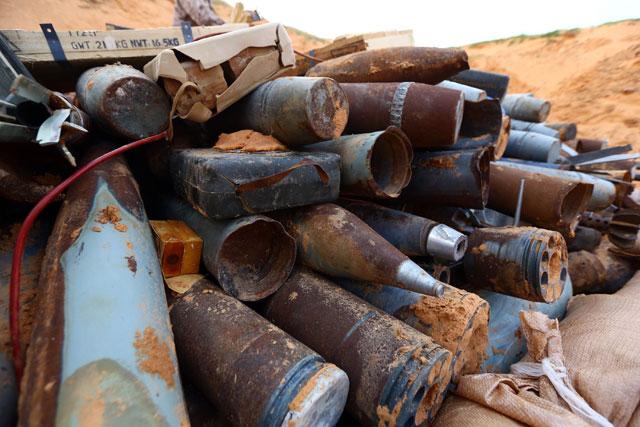You are here
Libyan factions hold UN-backed peace talks
By Reuters - Feb 11,2015 - Last updated at Feb 11,2015
TRIPOLI — UN negotiators resumed talks on Wednesday with delegates from Libya's warring factions, holding separate meetings with rival parties in the latest attempt to end the OPEC oil producer's political crisis and broker a ceasefire.
Libya is caught up in a struggle between an internationally recognised government and a rival administration set up in Tripoli after an armed faction seized the capital last summer.
Both are backed by brigades of fighters who helped oust veteran leader Muammar Qadhafi in 2011 but have since turned against one another in a complex conflict involving tribes, former Qadhafi troops, Islamist militants and federalist forces.
UN special envoy Bernardino Leon met representatives of the rival governments in the southern town of Ghadames near the Algerian border. Both governments operate their own parliaments and armed forces in a conflict Western powers fear will slide into broader civil war.
The UN said Wednesday's talks had focused on an agenda and timetable for parties to work to an agreement, but it said more detailed negotiations would take place in coming days.
Previous talks held in Geneva last month made little progress because key representatives from the Tripoli-based government stayed away, demanding the dialogue be held in Libya.
The United Nations is first seeking a deal on a unified government, a ceasefire and getting armed groups out of Libya's main cities and key installations. But UN officials acknowledge these aims fall well short of ending the crisis.
Libya's two largest oil ports, Es Sider and Ras Lanuf, with a combined capacity of around 600,000 barrels per day, have been shut by fighting since December, cutting off vital oil revenues and denting the economy.
Keeping any ceasefire or securing a lasting political agreement is complicated by Libya's fragmented politics. The rival factions are essentially loose confederations of different armed groups and political leaders whose loyalties are not always aligned.
Analysts also question whether the delegates attending the UN-backed talks will be able to bring on board hardliners among the armed groups on the ground who still believe they can gain more from fighting.
Related Articles
TRIPOLI — France's Foreign Minister Jean Yves Le Drian was in Libya on Monday to meet rival political leaders and offer support for a deal a
Libya reopened its oil port of Hariga on Tuesday, ending a strike by guards that had threatened to further slash exports as rival factions fight for control of the OPEC country.
TRIPOLI — Italy's foreign minister made a flying visit to Tripoli on Tuesday to meet Libya's UN-backed unity government, pledging broad inte
















